Discover Knowing Animals
Knowing Animals

Knowing Animals
Author: Josh Milburn
Subscribed: 408Played: 5,701Subscribe
Share
Description
Knowing Animals is a regular 20 minutes podcast about all things related to animals and ethics; animals and the law; animals and politics; and animal advocacy. It features interviews with academic and animal advocates. It is available free so enjoy!
300 Episodes
Reverse
On this episode of Knowing Animals, we are joined by Dr Ian Werkheiser. Ian is an Associate Professor in the Department of Philosophy at The University of Texas Rio Grande Valley, and is the director of the Center for Collaboration and Ethics at the University. We talk about Ian's paper "Precision Livestock Farming and Farmers' Duties to Livestock", which was published in the Journal of Agricultural and Environmental Ethics as part of a special issue on "Engineering and Animal Ethics", which was co-edited by Professor Clare Palmer and Professor Gary Varner. This episode of Knowing Animals is brought to you by AASA. AASA is the Australasian Animal Studies Association. You can find AASA on Facebook here: https://www.facebook.com/AASA-Australasian-Animal-Studies-Association-480316142116752/. Join AASA today! This episode if also brought to you by Animal Publics, a special Animal Studies series at the Sydney University Press:https://sydneyuniversitypress.com.au/collections/series-animal-publics Knowing Animals is a proud member of the iROAR podcasting network. To check out more great iROAR podcasts visit the website: https://iroarpod.com
This episode of Knowing Animals comes to you from Koh Samui, Thailand where I am attending the Koh Samui International Podcast Festival. I am lucky to be joined by Linda, one of the wonderful Samui Dog and Cat Foundation volunteers. To learn more about Samui Dog and Rescue, and to make a much needed donation, go to: http://www.samuidog.org/LatestNews_en.html This episode of Knowing Animals is brought to you by AASA. AASA is the Australasian Animal Studies Association. You can find AASA on Facebook here: https://www.facebook.com/AASA-Australasian-Animal-Studies-Association-480316142116752/. Join AASA today! The call for papers for the next AASA conference is now open! The conference will be held in Christchurch, New Zeeland, July 1 – July 4th, 2019. More information is available here: http://animalstudies.org.au/archives/6303.
This is a very special episode of Knowing Animals brought to you in the middle of Australia's fire crisis. Today I speak to Charlie Jackson-Martin from Sydney Dingo Rescue and Mick and Tracey from Peanuts Wellbeing Sanctuary. Both groups are in need of financial support. You can donate to Sydney Dingo Rescue here: https://www.patreon.com/user?u=15905167&fbclid=IwAR1MjCUhENmjghheL9lEfb_Se9RGsZFZjyrI1Xxnjt9l_p98ilIUV1QgBko and Peanuts here: https://peanuts-well-being-sanctuary.giveeasy.org/urgent-help-needed?fbclid=IwAR222EKKaKPP3ipQ3hp7aiN08vLMY5frTPlxHzwTZppV35jT8ZEuZ2f8Mts You may also like to support the Animal Rescue Collective here: https://www.facebook.com/animalrescuecoop/?eid=ARDZ21OFIqSIrmoU1Vch61L56tS-wK5ZDtrO7jwbvkR1B_orpmF7xiR6TPAOFCqfTtVgVkuTOEG3tNPK This episode is brought to you by AASA: http://animalstudies.org.au and Animal Publics: https://sydneyuniversitypress.com.au/collections/series-animal-publics
This episode of Knowing Animals is from our Protecting Animals series. I am joined by Angela Robert from Uncaged and then the Centre for Animals and Social Justice: http://www.casj.org.uk. This episode of Knowing Animals is brought to you by AASA. AASA is the Australasian Animal Studies Association. You can find AASA on Facebook here: https://www.facebook.com/AASA-Australasian-Animal-Studies-Association-480316142116752/. Join AASA today! This episode of Knowing Animals is also brought to you by MC Pony. MC Pony brings you Mindful Rhymes for Kinder Times. Check out MC Pony at www.veganthused.com.
This episode of Knowing Animals is from the Protecting Animals series. I am joined by Kim Stallwood. Kim is a long standing animal advocate, having working for many of the world's leading animal protection agencies in both the UK and the USA. We talk to Kim about his reflections on that work. They are outlined in his book 'Growl: Life, Lessons, Hard Truths and Bold Strategies from an Animal Advocate'. Growl was published by Lantern Books in 2014. This episode of Knowing Animals is brought to you by AASA. AASA is the Australasian Animal Studies Association. You can find AASA on Facebook here: https://www.facebook.com/AASA-Australasian-Animal-Studies-Association-480316142116752/. Join AASA today! This episode of Knowing Animals is brought to you the podcast 'Species'. Learn about a different species of animal each week with this interesting half hour podcast. Find out more here: http://species.libsyn.com.
This episode of Knowing Animals is part of the Protecting Animals series. I am lucky to be joined by actor, producer and writer Martin Dingle Wall. Martin has appeared in many Australian series including Home and Away, Underbelly and Upper Middle Bogan. Martin now lives in LA and recently stared in the indie hit movie Happy Hunting. Martin is also a passionate animals and regularly uses his profile to raise animal issues. This episode of Knowing Animals is brought to you by AASA - the Australasian Animal Studies Association. AASA is the peak body for Animal Studies scholars in Australia and around the world. Learn more here: http://animalstudies.org.au.
Today's guest is Dr Doris Schneeberger of the Vienna University of Economics and Business. Doris's academic background is in animal ethics and animal organizational studies. We're discuss her 2024 Palgrave Macmillan book Envisioning a Better Future for Nonhuman Animals: Towards Future Animal Rights Declarations. This is one of the three books shortlisted for the Australasian Animal Studies Association's inaugural Siobhan O'Sullivan Book Prize. (The others are Josh Milburn's Food, Justice, and Animals: Feeding the World Respectfully and Yamini Narayanan's Mother Cow, Mother India: A Multispecies Politics of Dairy in India.) The winner will be announced this month. In her answers to her quick questions, Doris mentioned Peter Singer, Pablo Castelló, Claudia Hirtenfelder, and Nico Dario Müller.
This episode's guest is Dr Jack Waverley, a Senior Lecturer in Fashion Marketing in the Department of Materials at the University of Manchester in the UK. His academic background is in marketing and consumer research, and he's interested in exploring how these disciplines can promote the interests of all animals, and not just humans. In this episode, we discuss his article 'Organs or bodies? Toward an equitable, embodied, and animal-inclusive diversity, equity, and inclusion agenda', which appeared open access in the journal Consumption Markets & Culture in 2024. This episode is proudly sponsored by the Animal Politics book series, from Sydney University Press. In his answers to the quick questions, Jack mentioned Peter Singer's Animal Liberation and Tom Regan's Case for Animal Rights, as well as the 2008 article 'Figuring companion-species consumption: A multi-site ethnography of the post-canine Afghan hound', by Shona Bettany and Rory Daly.
This episode's guest is Dr Rimona Afana. Rimona is a Romanian-Palestinian academic, as well as an activist and multimedia artist. Her research addresses war crimes, crimes against humanity, crimes against nature, and crimes against nonhuman animals. Her work has taken her to various institutions, including Emory University School of Law and Kennesaw State University in the US, where she was an Assistant Professor of Peace Studies. Among her other research projects, she is working on a book with the working title Ecocide/Speciesism: Rethinking Interdependence in the Anthropocene. In this episode, however, we discuss her forthcoming paper 'The Invisible Victims of Israel's Genocide/Ecocide on Gaza: Crimes Against Nature and Nonhuman Animals', which is an invited contribution to the De Gruyter Handbook of Conflict Resolution and Peace. Listeners interested in reading the paper are invited to email Rimona for a copy. This will also allow them to check the sources for the facts and figures that Rimona mentions during the interview. The cover image is by Rimona, and features a homeless kitten in Rafah, Gaza. In response to the quick questions, Rimona mentioned: The work of Richard Falk (https://doi.org/10.1177/096701067300400105) and Polly Higgins (https://shepheardwalwyn.com/product/eradicating-ecocide-second-edition/) on ecocide. The work of Richard Ryder (https://en.wikipedia.org/wiki/Richard_D._Ryder), Steve Sapontzis (https://en.wikipedia.org/wiki/Steve_F._Sapontzis), Steven Wise (https://en.wikipedia.org/wiki/Steven_M._Wise), and Piers Beirne (https://usm.maine.edu/directories/people/piers-beirne/) on animals. Her own work on ecocide (https://link.springer.com/rwe/10.1007/978-981-15-3877-3_33-1) and theriocide (https://vernonpress.com/book/1852). You can find Rimona/Rimona's work on LinkedIn (https://linkedin.com/in/rimonaafana/), ORCID (https://orcid.org/0009-0007-0871-3530), X (https://x.com/rimona_afana), and BSky (https://bsky.app/profile/rimona-afana.bsky.social). You can follow her Ecocide/Speciesism project on Facebook at http://www.facebook.com/ecocide.speciesism. Knowing Animals is proudly sponsored by the Animal Politics book series, from Sydney University Press. For more information about the series, see https://sydneyuniversitypress.com/collections/series-animal-politics.
Dr Matti Wilks is a social and developmental psychologist who is a reader in psychology at the University of Edinburgh. Her work explores people's moral motivation and actions. This includes lots of work that will be of interest to listeners, including research addressing the psychology of moral concern for animals and research addressing attitudes towards cultivated meat. In this episode, we talk about her 2025 paper 'When development constricts our moral circle', which was co-authored with Julia Marshall, Lucius Caviola, and Karri Neldner, and published in Nature Human Behaviour. Knowing Animals is proudly sponsored by the Animal Politics book series, from Sydney University Press. And thanks to Brenda de Groot, who designed the moral circle image used as part of this episode's cover. In her answers to the regular questions, Matti mentioned The Ethics of What We Eat by Peter Singer and Jim Mason (https://archive.org/details/ethicsofwhatweea00pete), her paper on attitudes to cultivated meat (https://journals.plos.org/plosone/article?id=10.1371/journal.pone.0171904), and the work of Steve Loughnan and Brock Bastian on the meat paradox (e.g., https://journals.sagepub.com/doi/abs/10.1177/0963721414525781).
This episode's guest is Dr Stanislav Roudavski, who is a designer and academic. He leads Deep Design Lab, a research and creative collective that focuses on design for and with nonhuman beings. He is also a Senior Lecturer in Digital Architectural Design at the University of Melbourne. His research develops theories and practices that engage with nonhumans, including animals, plants, and ecosystems, but also artificial agents such as AI. In this episode, he talks about his recent article 'From Dingoes to AI: Who Makes Decisions in More-than-Human Worlds?', which was published in the open access journal TRACE ∴ Journal for Human-Animal Studies in 2025 and was co-authored with Douglas Brock. In his answers to the regular questions, Stanislav mentions the following works: "Kholstomer", a short story by Leo Tolstoy (https://en.wikipedia.org/wiki/Kholstomer) Vladimir Vernadsky's 1926 book The Biosphere (1998 English translation: https://link.springer.com/book/10.1007/978-1-4612-1750-3) Peter Kropotkin's 1902 collection Mutual Aid (http://en.wikipedia.org/wiki/Mutual_Aid:_A_Factor_of_Evolution) His own 2016 presentation 'Building Like Animals: Using Autonomous Robots to Search, Evaluate and Build' (https://isea-archives.siggraph.org/presentation/building-like-animals-using-autonomous-robots-to-search-evaluate-and-build/) John Odling-Smee's open access 2024 book Niche Construction (https://direct.mit.edu/books/oa-monograph/5822/Niche-ConstructionHow-Life-Contributes-to-Its-Own) His own Google Scholar profile: https://scholar.google.com/citations?user=4J_lRh4AAAAJ&hl=en His own Academia.edu profile: https://unimelb.academia.edu/StanislavRoudavski And the Deep Design Lab wiki: https://wiki.deepdesignlab.online/.
Today's guest is Thom van Dooren. Thom is a Professor of Environmental Humanities and the Deputy Director of the Sydney Environment Institute at the University of Sydney. He summarizes his own interdisciplinary work as being about understanding and caring for the dead and the dying, including humans and animals, and including individuals, populations, and kinds. He will be known to lots of listeners for his contributions to 'extinction studies'. His publications include the 2014 book Flight Ways: Life and Loss at the End of Extinction and the 2019 book The Wake of Crows: Living and Dying in Shared Worlds, both from Columbia University Press. In this episode, we talk about his 2022 MIT Press book A World in a Shell: Snail Stories for a Time of Extinctions. Knowing Animals is proudly sponsored by the Animal Politics book series at Sydney University Press.
Today's guest is Dr Juliette Waterman. Juliette is a zooarchaeologist with a particular interest in the archaeology of wild animals in Britain, and especially in birds. She is currently a postdoctoral researcher in the Department of Geography and Environmental Science at the University of Reading in the UK, where she co-coordinates the International Council for Archaeozoology Stable Isotope Working Group. Today, we're going to talk about her paper 'Human-raptor relationships in urban spaces: the history of red kites (Milvus milvus) and human food in Britian'. This paper was published in The Hand That Feeds: The Complex Relations of Human-Animal Feeding from UCL Press in 2025. Juliette co-edited the volume with Alexander Mullan, Riley Smallman, and Herre de Bondt. The volume is open access, so you can freely and legally download the book wherever you are in the world, from 13 May. Knowing Animals is proudly sponsored by the Animal Politics book series from Sydney University Press.
On this episode, we speak to Dr Pablo P. Castello, currently a Research Fellow of the Animal Law and Policy Program at Harvard Law School. Pablo is an interdisciplinary political theorist whose work has appeared in such diverse locations as the American Political Science Review, Biological Conservation, and the feminist philosophy journal Hypatia. On this episode, however, we focus on his recent article 'The fabric of zoodemocracy: a systemic approach to deliberative zoodemocracy', which was published in the Critical Review in International Social and Political Philosophy, or CRISPP. Knowing Animals is proudly sponsored by the Animal Politics book series, published by Sydney University Press.
This week's guest is Dr Charlotte Wrigley, who is a postdoctoral researcher at the Greenhouse Centre for Environmental Humanities at the University of Stavanger in Norway. She has a mixed academic background, but her PhD (at Queen Mary University in London) was in human geography. Her research expertise concerns the arctic, extinction, and climate change. We talk about mammoths, and especially Charlotte's beautifully named book Earth, Ice, Bone, Blood: Permafrost and Extinction in the Russian Arctic, which was released in 2023 by University of Minnesota Press. This episode is brought to you by the Animal Politics book series, from Sydney University Press.
This episode's guest is Professor Chloë Taylor, a scholar of gender studies and critical animal studies at the University of Alberta, as well as one of the editors of the Animal Politics book series at Sydney University Press, who are sponsors of Knowing Animals. We explore the 2024 Routledge Companion to Gender and Animals, which Chloë edited.
This episode features a returning guest: someone who first appeared on Knowing Animals nearly nine years ago, in February 2016. Dr Richard Twine is a Reader in Sociology at Edge Hill University in the UK. He'll be well-known to lots of regular listeners of this podcast for the work he's done championing the discipline of critical animal studies. His books include 2010's Animals as Biotechnology, which I've seen described as the first book entirely devoted to critical animal studies, and the 2014 collection The Rise of Critical Animal Studies, co-edited with Nik Taylor. On this episode, however, we talk about his 2024 Sydney University Press book The Climate Crisis and Other Animals, published as part of the Animal Politics book series. We're particularly pleased to feature this book as the Animal Politics series at Sydney University Press is a sponsor of this podcast.
Dr Liza Bauer is the scientific manager of the Panel on Planetary Thinking project at the University of Giessen in Germany, having recently completed a PhD on literary animal studies at the same institution. In this episode, we discuss her book Livestock and Literature: Reimagining Postanimal Companion Species, which was published by Palgrave Macmillan as part of their series Palgrave Studies in Animals and Literature in 2024. This episode is brought to you by the Animal Politics book series at Sydney University Press.
This episode features Professor Jonathan Birch of the Department of Philosophy, Logic, and Scientific Method at the London School of Economics and Political Science. Jonathan is a philosopher of science who will be best known to an animal studies audience for his work on the science of sentience. This includes his 2021 report Review of the Evidence of Sentience in Cephalopod Molluscs and Decapod Crustaceans, which led to cephalopods and decapods being recognized as sentient beings in UK law. He was also one of the lead signatories of the New York Declaration on Animal Consciousness. In this episode, we talk about his 2024 Oxford University Press book The Edge of Sentience: Risk and Precaution in Humans, Other Animals, and AI. This is an open access book, meaning that all listeners can read and download it for free entirely legally. This episode is brought to you by the Animal Politics book series, from Sydney University Press. This is a collection of scholarly books about animal studies. As well as recently changing names, the series also has new editors: Danielle Celermajer, Rick De Vos, Chloë Taylor, and Katie Woolaston. If you're currently working on a book about animal studies, you should consider reaching out to them to see if the series would be a good fit – and we'll get a chance to ask some of these new editors about the Animal Politics series in upcoming episodes of Knowing Animals.
Knowing Animals is back! This episode features Professor Samantha Vice, a distinguished professor of philosophy at Wits University in Johannesburg, South Africa. Samantha is probably best known for her work in the philosophy of race, including her paper 'How Do I Live in This Strange Place?', which explores white privilege, and has been widely discussed. In this episode, however, explore her 2023 book The Ethics of Animal Beauty, which was published by Lexington. Knowing Animals is proudly sponsored by Sydney University Press. Their Animal Publics book series has been renamed to the Animal Politics book series. Earlier this year, they published Richard Twine's book The Climate Crisis and Other Animals, which is available in both paperback and hardback. The paperback edition, in particular, is very reasonably priced – academic books are often very expensive, but Sydney University Press bucks that trend.



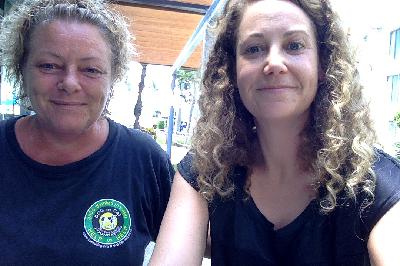

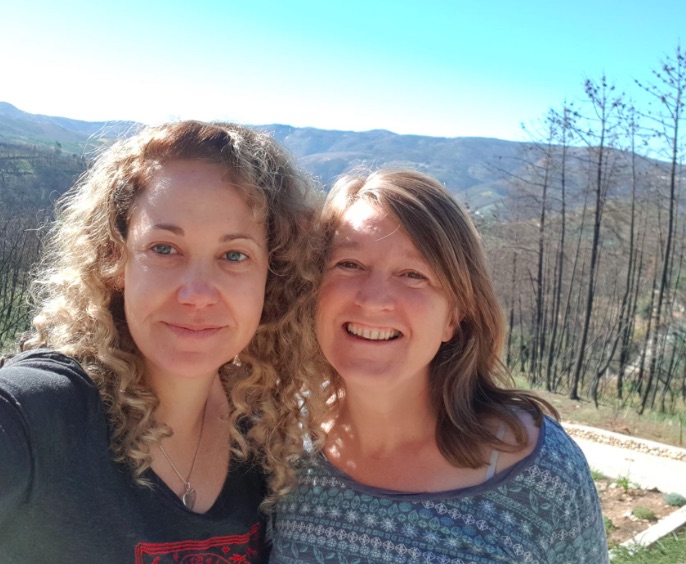
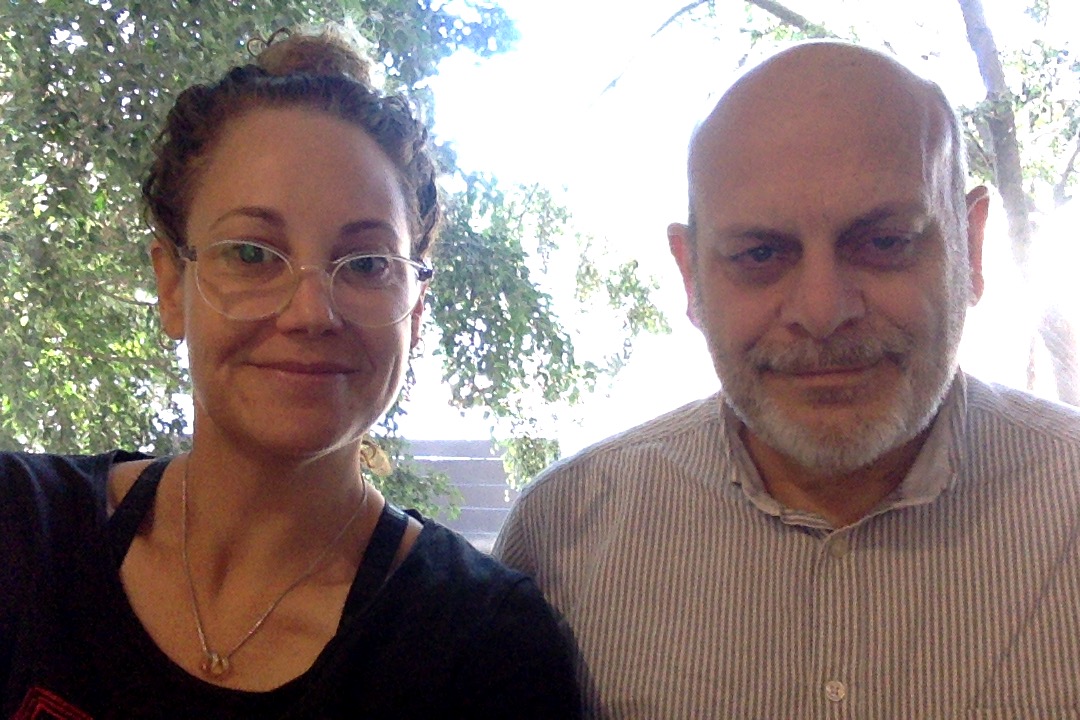




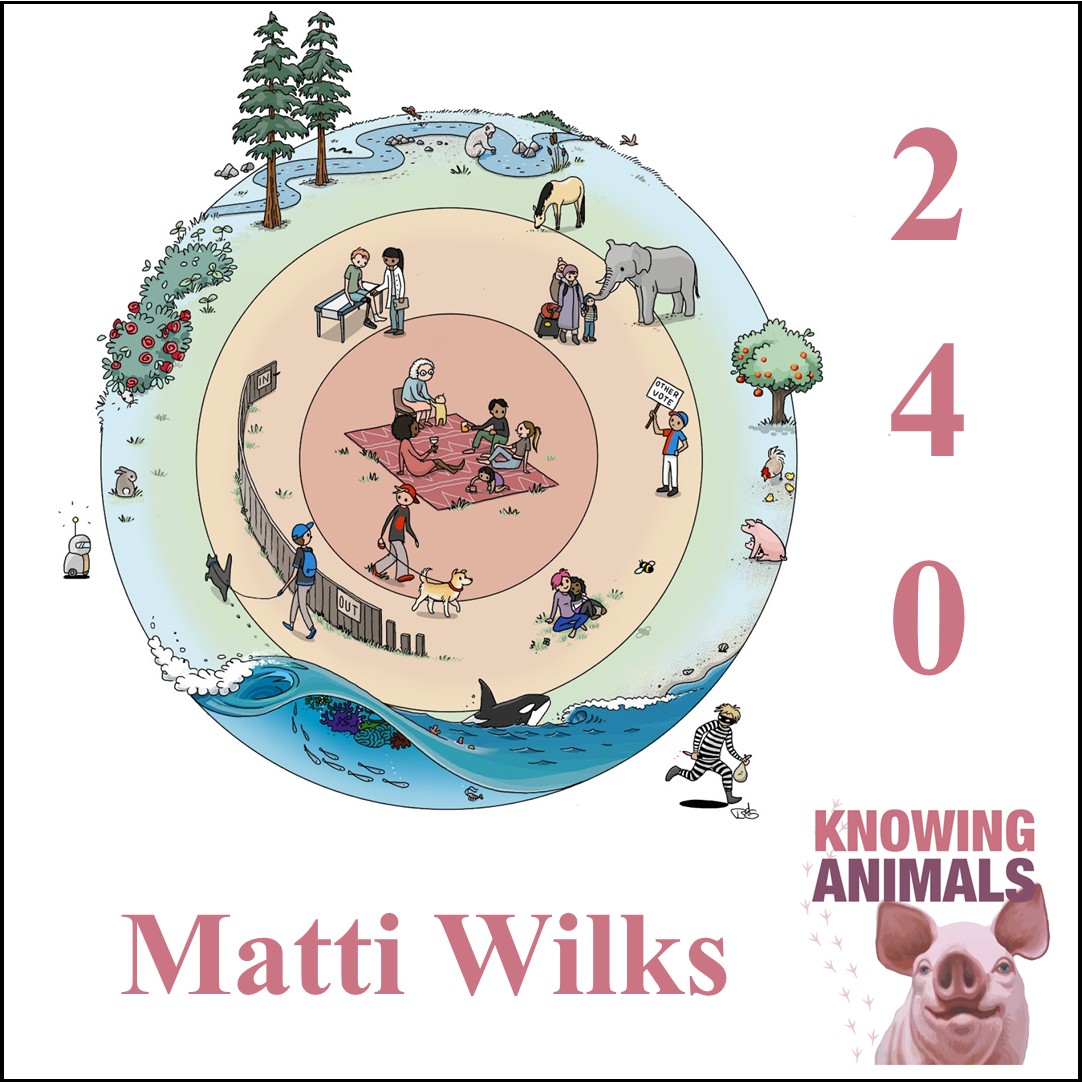









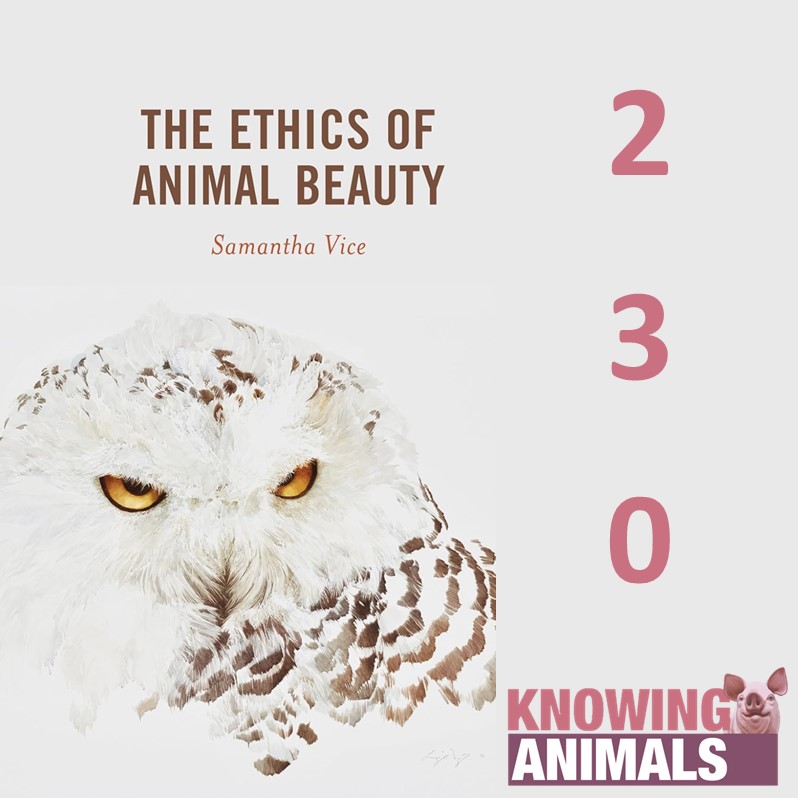



I just found this podcast and it is amazing! Excellent speakers. Erica Fudge's book, Animal, is fascinating too.